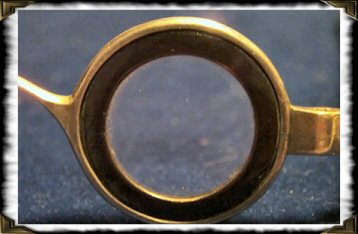I fell so hard and so fast that I didn’t know I had fallen until I started crawling out.
— Heidi Skurat Harris, “Buried in Polyester”

When the doctor said, “bone marrow biopsy,” my mom and I didn’t make eye contact. My feet stopped tapping on the white, blue, and salmon speckled tiles, my breath caught as I stared at the picture of Julia Roberts on the cover of Good Housekeeping.
Around noon, she was being prepped for the routine procedure, and after my dad and brother left for lunch, I stayed glued to the vinyl covered seat and watched Dr. Marrow’s nurses hand him tools off a tray to push, cut, and drill into Mom’s hip. And she screamed—“Owww, this wasn’t supposed to hurt. I need more medicine. I can feel that—ooohhh.” The doctor assured her that she didn’t need more medicine.
He winked at me and said she’d forget. “It’ll be like a hole in her memory, and she’ll have you to fill in the gap.”
O
My hair won’t lay right. I can’t shape or straighten it. The brown locks just hang in clumps around my face, blocking my side view of the sunken-in floor. The linoleum is curling up, cracking, and splitting along the edge of the bathtub, around the toilet, making a sinking pit in front of the vanity.
I shift my weight, and my left leg pushes through, my right leg buckles under me, and I’m thigh deep, frantically wiggling under my house. I crawl out of the caved-in floor and run to the phone to call my mother, who tells me, “You’re okay. Calm down.”
That night, she carried in her maroon car mats and set them over the blue, soggy linoleum, blanketing the unevenness with the tattered navy bathroom rug.
O
When Dr. Chest pulled out the tube from between Mom’s ribs, I waited for him to tell me when he would seal the space between her lung and chest wall to stop the fluid from building up again. My eyes burned while I listened to him tell me he couldn’t complete the routine surgery because she wasn’t strong enough to survive. Too risky to attempt. Maybe in a couple of days, but until then, he could only monitor the stitches and bandages on her side—to prevent leaking.
O
It was the day after Christmas when I fell into the manure hole beside my grandpa’s dairy farm. After my cousin hosed me off in the cold cement barn, I went inside the house to warm up by the wood stove. My sopping green sweater and jeans sent the stench of slowly warming cow manure wafting through the house until my dad smelled me.
In a whirlwind of yelling, we were packed and in the car headed home, but first my dad wanted to see the lagoon. After seeing it, he got back in the car, angrier. He sentenced me: “You will not leave the house or the yard when you come back.”
Later, I asked my mom, “Why was Dad so mad that I broke through?” She gave me her best ‘you-don’t-really-know-Dad’ look and said, “A cow drowned out there not too long ago. You fell in farther from the bank than where it’d died. He didn’t know how you crawled out.”
O
Before the groundskeeper covered the mahogany casket with the dry brown dirt, I walked around the open grave, wanting to leap on the casket and be buried with Mom. The man looked at me as he leaned on a metal pole that held the blue tarp drooping above the hollow rectangle and said, “Don’t fall in. It’s deeper than it looks.”
Leslie Ann Salley holds an MA in Writing (emphasis in rhetoric and composition) from Missouri State University. Two of her teaching narratives have appeared in The Transescent: The Journal of the Missouri Middle School Association. She is happily married to her editor, Witt, and they reside in Springfield, MO, with their Labrador retrievers, Mama Dog and Scholar Lee.
